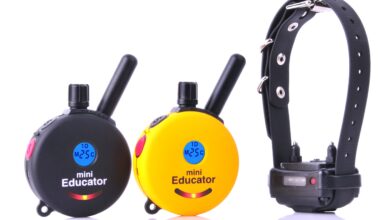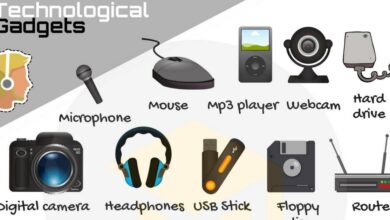Applied Industrial Technologies and the Cutting Edge of Manufacturing

Applied Industrial Technologies (NYSE: AIT) is a leading industrial distributor and service provider specializing in fluid power, motion control, automation, and other industrial technologies. Headquartered in Cleveland, Ohio, Applied has over 300 locations across North America.
The company was founded in 1923 as Bearings, Inc. to distribute antifriction bearings. Over the decades, Applied expanded its product and service offerings through organic growth and acquisitions. Today, Applied offers over 5 million SKUs for MRO and OEM customers in virtually every industry.
Key products carried by Applied include bearings, power transmission components, fluid power components, specialty flow control solutions, machinery and robotics components, safety products, and more. The company provides customized systems and solutions for power transmission, pneumatics, hydraulics, pumps, valves, filtration, lubrication, fluid conveyance, and more.
In addition to distribution, Applied offers value-added services such as engineering, fabrication, repair, and predictive maintenance. With its extensive product knowledge and design expertise, Applied provides complete customized systems to improve customers’ productivity and profitability.
Applied has over 5,500 employees focused on solving customers’ challenges. The company aims to be the premier industrial solutions provider in North America through best-in-class customer service, localized inventory and expertise, and a solutions-focused approach.
Products and Services
Applied Industrial Technologies is a leading industrial distributor and provider of technical expertise, solutions, and services. The company offers a wide range of industrial products including bearings, power transmission components, fluid power components, specialty flow control solutions, and other industrial supplies.
Some of Applied’s major product categories include:
-
Bearings – Applied offers a full line of bearings from top manufacturers including SKF, Timken, NSK, and others. They carry all types of bearings including ball bearings, roller bearings, mounted bearings, and more. Their bearing experts can help customers select the right bearings for their applications.
-
Power Transmission – Applied provides a variety of power transmission products including belts, chains, couplings, motors, gearboxes, linear motion components, and more. Key brands include Gates belts and hose, Rexnord bearings and gearing, and Warner Linear motion systems.
-
Fluid Power – Applied is a leading distributor of hydraulic, pneumatic, and filtration products. They offer a range of hydraulic pumps, cylinders, valves, fittings, hoses, and accessories. For pneumatics, they supply air preparation equipment, valves, actuators, and related products. Applied also has extensive filtration solutions.
-
Specialty Products – In addition to core categories, Applied offers specialized solutions including lubrication systems, custom rubber products, tools, safety products, and more. Their technical specialists can engineer customized systems.
Applied leverages its distribution network and expertise to deliver the right industrial products when and where customers need them. The company continually adds new products, technologies, and value-added services to help customers operate efficiently and productively.
Financial Performance
Applied Industrial Technologies has demonstrated consistent growth in recent years. The company reported record sales of $3.24 billion in fiscal 2021, representing an increase of 2.4% over the prior year. Net income rose to $151.3 million in 2021 compared to $127.9 million in 2020.
The company has continued to gain market share and now holds the #3 position in the industrial distribution space with approximately 5% market share in North America. Applied has benefited from both organic growth and strategic acquisitions. In 2021, the company completed two acquisitions which expanded its fluid power and flow control capabilities.
Looking ahead, Applied expects to continue its growth trajectory. The company is focused on driving organic growth by leveraging its technical expertise to gain a share in fragmented markets. Acquisitions also remain a key part of the strategy, allowing Applied to expand its product and service offerings. With its strong financial position and proven acquisition model, the company is well-positioned for further gains.
Competitive Advantage
Applied Industrial Technologies sets itself apart through its broad product offering, extensive distribution network, and commitment to operational excellence. The company has built a strong reputation over its 90+ year history for providing customized solutions and exceptional customer service.
Some of Applied’s key strengths and advantages include:
-
Broad product portfolio – Applied offers over 6 million SKUs from thousands of trusted brands across bearings, power transmission, automation, lubrication, fluid power, and more. This breadth enables the company to be a one-stop-shop for industrial customers.
-
Extensive distribution network – With over 500 facilities across North America, Applied has one of the largest distribution footprints in the industrial sector. This allows the company to offer quick delivery times and responsive local service.
-
Custom engineering and solutions – Applied has in-house engineering expertise to provide tailored product and system solutions to meet unique customer needs. The company prides itself on being an extension of its customers’ operations.
-
Strong customer relationships – By combining technical expertise and responsive service, Applied has cultivated long-standing relationships with customers across diverse industries. Customer retention rates are high.
-
Lean operating model – Applied utilizes principles like demand flow technology, Kanban, and Kaizen to optimize operations. This enables the company to keep costs low while still offering premium service.
-
Experienced management team – The executive team has decades of experience across industrial distribution and manufacturing. Their leadership provides stability and continuity even during challenging market conditions.
Applied’s combination of breadth, scale, and operational excellence makes it a trusted partner for industrial customers looking to improve efficiency and productivity. The company is well-positioned to maintain its competitive edge.
Industry Trends
The industrial manufacturing sector is experiencing several key trends that are shaping the competitive landscape and creating new opportunities for growth.
Automation
Automation and smart manufacturing technologies like robotics, IoT sensors, and predictive analytics are enabling factories to become more efficient, productive, and responsive. Companies that invest in automation can reduce costs and improve quality control. This trend is making industrial manufacturing more competitive globally.
Supply Chain Modernization
Modernizing supply chain operations through digitization, visibility tools, and synchronized planning is a priority. Businesses want end-to-end transparency and flexibility to mitigate risks and delays. Optimized supply chains can deliver higher customer satisfaction.
Sustainability
Sustainability is influencing manufacturing processes and product design. Industrial companies are pursuing energy efficiency, waste reduction, recycled materials, and closed-loop systems to lower their environmental impact. Greener operations can reduce expenses and align with consumer preferences.
Customization
Mass customization and on-demand manufacturing are growing, enabled by flexible production systems. Companies can respond quickly to customer specifications for personalized products. Localized and distributed manufacturing also supports customization.
Data Utilization
The use of data analytics and artificial intelligence is expanding in industrial settings. Machine learning can improve quality control, predictive maintenance, market forecasting, and other business insights. Companies that leverage data-driven decisions can boost their strategic capabilities.
Customer-Centricity
Industrial companies are becoming more customer-centric, using technology to directly engage with clients and provide superior purchasing experiences. Customer relationships and service are differentiating factors in the industry.
By capitalizing on these trends, industrial manufacturing companies can innovate their operations, create value-added services, reach new markets, and deliver greater value to customers. Agility and digital capabilities will be key competitive advantages going forward.
Sustainability
Applied Industrial Technologies takes sustainability seriously and is committed to responsible environmental, social, and governance (ESG) practices. The company has implemented numerous initiatives to reduce its environmental impact and support its employees and communities.
Environmental
-
Applied has set goals to reduce energy use, greenhouse gas emissions, water use, and waste generation at its facilities. Energy efficiency projects, equipment upgrades, and optimized operations have already reduced the company’s energy intensity.
-
The company utilizes an Environmental Management System to track and manage its environmental performance. Audits are conducted regularly to identify opportunities for improvement.
-
A concerted effort has been made to reduce waste, increase recycling, and utilize more sustainable packaging solutions. Hazardous wastes are disposed of responsibly.
Social
-
Employee health and safety is a top priority. Comprehensive safety policies and training programs are in place, resulting in low injury rates.
-
Career development opportunities, competitive benefits, and employee resource groups foster a diverse and inclusive work culture.
-
Philanthropic initiatives and volunteer programs aim to support local communities. Charitable contributions focus on organizations that provide STEM education opportunities.
Governance
-
Applied’s board of directors sets the tone for ethical business practices. Directors come from diverse backgrounds and bring expertise in areas like operations, finance, technology, and risk management.
-
Executive compensation is tied to both short-term and long-term performance goals to incentivize sustainable growth.
-
Robust internal controls, auditing procedures, and a confidential reporting system uphold financial integrity and prevent fraud.
-
The company’s code of business ethics and conduct provides guidance on areas like anti-corruption, conflicts of interest, and data privacy. Compliance is taken seriously.
Through these efforts and initiatives, Applied Industrial Technologies aims to grow responsibly and make a positive impact on its stakeholders and society. The company is committed to continuous improvement in sustainability performance over the long-term.
Leadership
Applied Industrial Technologies is led by a strong team of executives and board members who bring decades of experience across various industries.
Executives
-
Neil A. Schrimsher – President & Chief Executive Officer. Schrimsher has served as President and CEO since 2011. He previously held various leadership roles at Cooper Industries.
-
David K. Wells – Vice President-Chief Financial Officer & Treasurer. Wells joined Applied in 2017 with over 20 years of finance experience at various public companies.
-
Michael L. Topa – Vice President-General Counsel & Secretary. Topa joined Applied in 1998 and has over 25 years of legal experience.
-
Fred D. Bauer – Vice President-Chief Information Officer. Bauer has been with Applied since 1999 in various IT leadership roles.
Board of Directors
Applied’s Board of Directors consists of 10 members with expertise across manufacturing, distribution, finance, and more. Some notable board members include:
-
Joseph P. Crabb – Independent Chairman. Crabb has served on Applied’s board since 2003. He is the former CEO of Houston Wire & Cable Company.
-
L. Thomas Hiltz – Independent Director. Hiltz joined the board in 2015. He previously served as CEO of several distribution companies.
-
Dan P. Komnenovich – Independent Director. Komnenovich joined in 2015 with over 35 years of industrial distribution experience.
The board provides valuable guidance and oversight thanks to decades of relevant industry experience.
Leadership Strategy
Applied aims to empower its leaders to make decisions quickly and act in the best interests of customers. There is a focus on promoting from within to build bench strength. The executive team holds town halls and visits local branches frequently to connect with employees. Overall, the leadership strategy revolves around servant leadership, or leading by serving others first.
Company Culture
Applied Industrial Technologies has built a strong workplace culture centered around its core values of integrity, mutual respect, quality, and customer focus. The company emphasizes open communication, collaboration, and teamwork.
Employees at Applied Industrial Technologies report high levels of job satisfaction. The company provides opportunities for training, development, and advancement. There is a focus on work-life balance, with flexible scheduling options available.
Leadership makes an effort to recognize employee achievements and hard work. The company has an employee recognition program that rewards outstanding performance. There are also opportunities for employees to give back through volunteering and fundraising initiatives.
Applied Industrial Technologies conducts regular employee engagement surveys to gather feedback. Survey results show that employees are satisfied with the company culture overall. The majority of employees say they are proud to work for Applied Industrial Technologies and would recommend it as a good place to work.
The company’s commitment to core values, communication, work-life balance, and employee growth and recognition have enabled Applied Industrial Technologies to develop a positive and productive workplace culture. This culture helps attract and retain top talent while keeping employees motivated, engaged, and satisfied in their roles.
Challenges
Applied Industrial Technologies faces several challenges as a distributor in the industrial products space. Some key risks and issues include:
-
Economic cycles and downturns – As a supplier of products to various industries, Applied is vulnerable to economic downturns and cycles that impact industrial production and manufacturing. For example, the COVID-19 pandemic disrupted global supply chains and manufacturing activity in 2020, which negatively impacted Applied’s financial performance. The company must be prepared to weather recessions and adapt its strategy.
-
Competitive pressure – The industrial distribution market is highly fragmented and competitive. Applied faces competition from large national distributors as well as regional and local players. Maintaining competitive pricing, service levels, and inventory availability is an ongoing challenge. The internet also enables increased price transparency and competition.
Reliance on suppliers
-
– Applied does not manufacture its own products and depends on third-party suppliers for inventory. Any issues with supplier relationships, availability of products, or supply chain disruptions can impact Applied’s ability to serve customers effectively. The company must maintain strong supplier relationships.
-
Technology disruption – Emerging technologies like 3D printing, automation, artificial intelligence, and e-commerce have the potential to disrupt traditional distribution models. Applied must adapt and leverage new technologies to improve efficiency and meet changing customer needs. Investing in innovation is key.
-
Regulations – As a global company, Applied must comply with diverse regulations across multiple jurisdictions related to operations, transportation, trade, environmental issues, data privacy, and more. Changing regulations present an ongoing challenge and risk for the business.
-
Talent management – Attracting, developing and retaining skilled talent is critical to Applied’s customer service and competitive position. The loss of key personnel or inability to hire qualified employees could impact performance. Effective workforce planning and talent development is essential.
To address these risks and challenges, Applied Industrial Technologies will need to remain agile and focused on meeting customer needs, while leveraging technology, expanding services, and implementing strategic initiatives to adapt to industry changes. Managing the competitive landscape and economic conditions will also be ongoing priority for the leadership team.
The Future
Applied Industrial Technologies is well-positioned for future growth and success in the industrial distribution market. The company has a strong focus on expanding its capabilities and reach through strategic acquisitions. In 2022 alone, Applied made four acquisitions to enhance its fluid power, automation, and other technical capabilities. These deals expanded Applied’s expertise and geographic coverage.
Looking ahead, Applied is optimistic about its growth prospects. The industrial economy is rebounding from pandemic lows, driving increased demand from Applied’s customers across diverse end markets like metals, chemicals, food and beverage, and more. At the same time, industrial distribution remains highly fragmented, giving Applied ample opportunity to continue its acquisition strategy. Management aims to deploy at least $150 million annually for deals.
Applied also plans to accelerate investments in digital technology and e-commerce. This will improve customer experience and unlock efficiencies. For example, the company is focused on enhancing its customer portal and back-end systems. Applied is also building its analytics capabilities to glean data-driven insights. These digital efforts aim to drive organic growth.
With its strong financial position, experience with integrations, and customer-focused culture, Applied is poised to keep gaining market share in industrial distribution. The company’s growth playbook has proven successful thus far, and management aims to continue executing. If Applied can keep finding accretive acquisitions and accelerating its digital transformation, the future looks bright.





